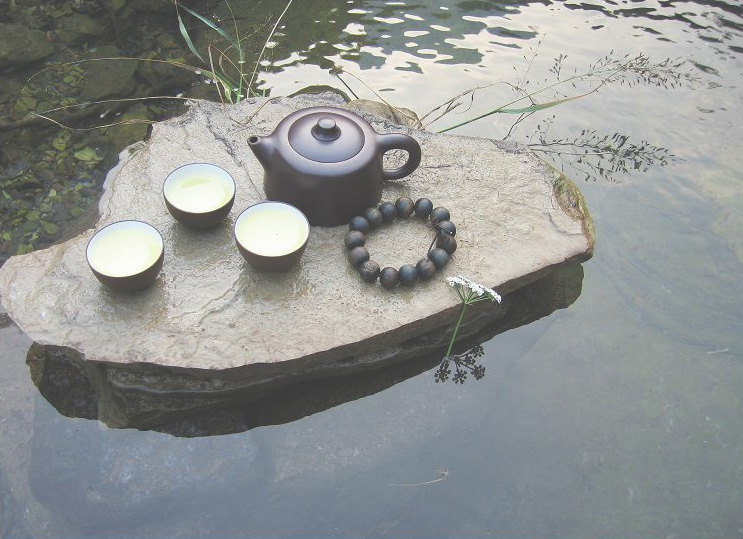I don’t remember when I started enjoying the taste of tea. It’s a bit bitter at first, then turns sweeter, unlike most other drinks that start out sweet and leave a lingering taste of tartness.
Because of my fondness of tea, my tea chest is filled with a wide variety: Anxi Tie Guanyin(Oolong Tea), Sri Lankan Black Tea, Liyang White Tea, Yunnan Pu Er Tea, Tuo Tea, Dongting Bi Luo Chun Tea(Green Tea), Xihu Long Jing Tea(Green Tea), Taiwan High Mountain Tea, Japanese Tea, tea bags, even many floral teas, plus Broadleaf Holly, which is way too bitter for me to ever drink…
In the past, I drank tea for the taste. A trip to Wuyi Mountain taught me how to drink tea with my heart.
Wuyi, a mountain in Fujian Province, was surrounded by lush trees and clear blue waters. On my way from the airport to the hotel, the aroma of earth and plants greeted me through the car window and made me throw to the wind the boisterousness of city life and the stress from work.
We were a group of two families traveling together, and none of us liked to walk a lot. Half way up the mountain, we were tired and decided to turn back. At a scenic spot, settled in comfortable wicker chairs and sheltered in the shadows of big umbrellas, we enjoyed a pot of the famous Dahongpao Tea(Wuyi Mountain Rock Tea). The hills and the waters were so beautiful that we sat there for two hours. We jokingly called ourselves the “sitting tourist group”.
There was a strip of stores outside the hotel, and the most popular product was tea. Fujian Province is famous for it teas, among which Rock Tea and Oolong Tea are the best known. We followed our steps to a shop. The shop owner was a rotund woman of easy manners and few words. She let us sample different teas in her shop while we chatted with her. She first “rinsed” the tea leaves in a large cup with hot water, which was discarded to cleanse the tea leaves of the initial bitterness and the dust accumulated during the drying process. After the second round of hot water was added to the tea, we let it steep for a few seconds then held it close to inhale the warm and refreshing fragrance. Finally, the tea was transferred to the teapot and poured into tiny tea cups for tasting. The cleansing, steeping, inhaling, and tasting seemed to have given the clear golden liquid a certain spirit and extra sweetness. In that moment, I suddenly realized that, the tea was not changed, but I was transformed. I forgot about work and my worldly worries, and my heart was quiet enough to sense the fragrance of the tea.
A person with a restless heart is unable to appreciate the essence, formality and complexity of the Japanese tea ceremony. But, once you are able to clear your mind, even for just a few minutes, you will understand the beauty of the tranquility. The spirit of the tea ceremony is “harmony, respect, purity, and quietness”.
In addition to the famous Dahongpao Tea, I also came back from Wuyi Mountain with many pieces of delicate tea ware. I carried them all the way home by hand as they were too fragile to be checked in with the airlines.
When it comes to tea, I’m not an expert but a dabbler at best. But does it really matter? To me, drinking tea has become part of my spiritual life. I use tea bags in the office for the convenience. At home, I enjoy my tea and play with my tea ware, either by myself or with family and friends. The fragrant red tea, green tea, and floral tea allow me to decompress, relax, and let my mind settle in peace and serenity.

|